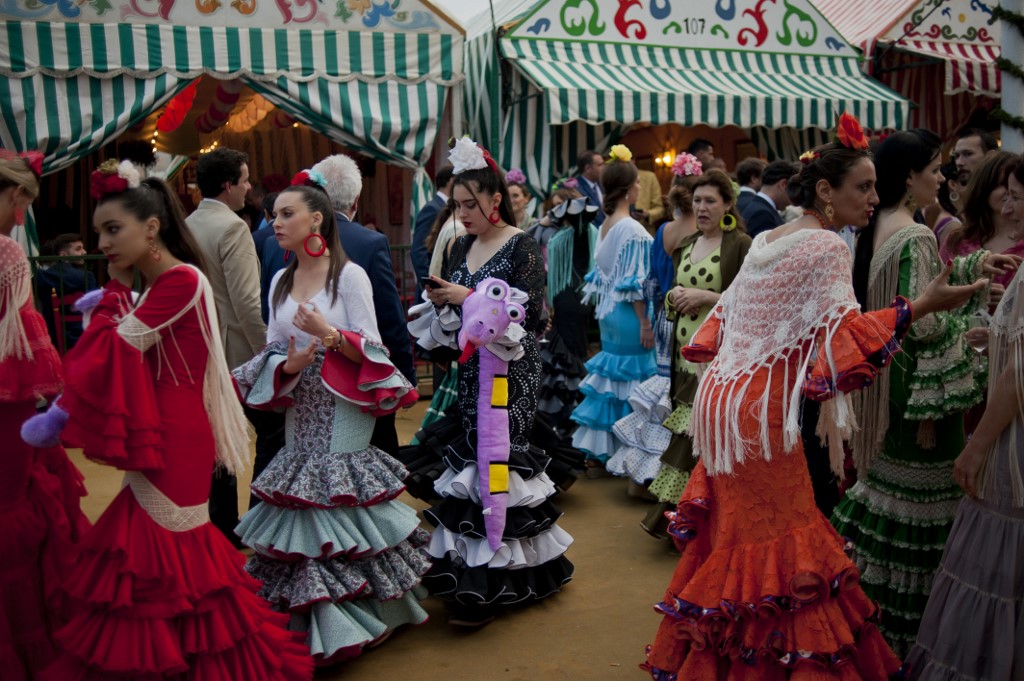“An international festival like San Fermin, in which millions of people come to Navarra, just won’t be possible,” said regional premier Maria Chivite on Tuesday in an announcement that came as a surprise to no-one.
The ten-day festival takes place each year from July 6thand has gained global fame after Ernest Hemingway wrote about it in his 1926 novel “The Sun Also Rises”.
Last year’s cancellation was the first in over four decades – it was cancelled in 1978 after a student was shot when pro-Eta protests turned violent and was suspended midway in 1997 again over tensions with Eta supporters – but the last time Pamplona did not celebrate San Fermin two years in a row was during the civil war in the 1930s.
However, it is not the only celebration to be called off in 2021 and is unlikely to be the last cancellation of the summer.
Las Fallas

A fallas figure from 2021 complete with face mask. Photo: AFP
So far, Valencia authorities have announced Las Fallas, the first big festival of the year will not take place this year.
Usually celebrated between March 15 and 19 in the Mediterranean coastal city, teams work year round to produce elaborate paper mâché models that are displayed before being set alight in a fiery finale accompanied by fire works.
Estimates put the economic impact of the cancellation of Las Fallas at around half a billion euros.
Semana Santa

Easter crowds like this won't be allowed. Photo: AFP
It seems very unlikely that Easter will be allowed to be celebrated in the usual way in Spain. Seville and Malaga which are both famous for the processions held during Semana Santa have already announced that they won’t be taking place this year.
Feria de Abril

Seville took the decision back in December to announce that its April fair wouldn’t be going ahead in 2021.
The spring festival that sees residents dress in traditional Andalusian attire and gather in casetas to dance, eat and drink usually takes place in April.
Trade fairs

Barcelona has postponed its Mobile World Congress, a huge tech event that usually takes place in March and hopes to hold it between June 28 and July 1 instead.
Likewise, Madrid has delayed its tourism trade fair Fitur, moving the event from the end of January to the week of May 19-23.
The Art fair Arco will also be shifted until July 7-11 and Madrid Fashion Week delayed from the end of January to April 8th.
READ MORE: How likely is it that we can travel in Spain at Easter?



 Please whitelist us to continue reading.
Please whitelist us to continue reading.
Member comments